In an age increasingly dominated by artificial intelligence (AI) and automation, discussions often centre around the skills that machines can replicate and enhance. However, there remains a realm of human capabilities that AI cannot usurp, skills grounded in emotional intelligence, interpersonal interaction, and ethical judgment.
Freemasonry, one of the world’s oldest and most enduring fraternal organizations, provides a unique environment for the cultivation of such indispensable soft skills. This article delves into the seven soft skills nurtured through Freemasonry: communication, teamwork, empathy, flexibility, conflict resolution, active listening, and trustworthiness.
By examining how Freemasonry’s teachings and practices facilitate the development of these skills, we underscore their irreplaceable nature in an increasingly AI-driven world.
Communication
Communication is the bedrock of human interaction, facilitating the exchange of ideas, emotions, and knowledge.
Freemasonry places a significant emphasis on the art of effective communication, both verbal and non-verbal. Within the Masonic framework, rituals and ceremonies require precise language and symbolic actions, necessitating clear expression and mutual understanding among members.
Rituals and Language
Masonic rituals, filled with allegorical content and historical references, demand an exacting use of language.
Members must comprehend and convey complex ideas symbolically and eloquently. This not only hones their verbal communication skills but also enhances their ability to interpret and utilize symbolic language.
Through regular participation in these rituals, Freemasons develop a sophisticated command of language and expression that transcends ordinary conversational abilities.
Social Interactions
Furthermore, the social environment of the lodge provides ample opportunities for members to practice and improve their communication skills. Regular meetings, public speaking opportunities, and informal interactions foster an environment where effective communication is paramount.
This frequent practice of verbal and non-verbal communication reaffirms the importance of clarity, empathy, and active listening, attributes that AI, despite its advanced mimicking capabilities, cannot authentically replicate.
Teamwork
The principle of collective effort and mutual support is central to Freemasonry. The organizational structure and activities within the lodge emphasize the importance of working together to achieve common goals.
This collective endeavor cultivates a deep-seated appreciation for teamwork, a skill critical in both personal and professional spheres.
Collaborative Projects
Freemasons frequently engage in charitable works and community service projects that require coordinated efforts and shared responsibilities.
By collaborating on these initiatives, members not only contribute positively to society but also learn the value of cooperation and interdependence.
These group efforts underscore the significance of delegation, mutual respect, and collective problem-solving.
Lodge Dynamics
The hierarchical yet democratic nature of Masonic lodges further reinforces the principles of teamwork.
Members progress through various degrees and roles, each with specific responsibilities that contribute to the lodge’s overall functioning.
This dynamic encourages a culture of mutual support and shared leadership, essential components of effective teamwork that AI, limited to following programmed directives, cannot embody.
Empathy
Empathy, the ability to understand and share the feelings of another, is a profoundly human trait that underpins moral and ethical behaviour.
Freemasonry, with its rich tapestry of symbolic teachings and moral philosophies, places a strong emphasis on nurturing empathy among its members.
Symbolic Lessons
Masonic rituals and teachings often involve allegories and symbolism that convey deeper moral and ethical lessons.
These narratives encourage members to reflect on their actions and consider the impact on others, fostering a heightened sense of empathy.
By engaging with these symbolic stories, Freemasons learn to appreciate diverse perspectives and develop a compassionate worldview.
Interpersonal Relations
The fellowship among lodge members also plays a crucial role in cultivating empathy. Freemasons come from diverse backgrounds, yet they are united by shared values and principles.
This diversity within the brotherhood necessitates an understanding and acceptance of different views and experiences.
Regular interactions and support networks within the lodge provide a nurturing environment for developing empathetic relationships, a quality that AI, with its lack of genuine emotional depth, cannot replicate.
Flexibility
Flexibility, or the ability to adapt to changing circumstances, is a vital skill in an ever-evolving world.
Freemasonry instills this quality through its teachings, rituals, and the symbolic journey of personal development that each member undertakes.
Adaptation through Symbolism
Freemasonic teachings often draw from historical events and symbolic narratives that highlight the importance of adaptability and resilience.
The allegorical journey of the Masonic initiate, fraught with challenges and uncertainties, mirrors the trials of life and underscores the necessity of flexibility.
By internalizing these lessons, members learn to navigate and adapt to real-world changes with greater ease.
Continuous Learning
The structure of Freemasonry promotes lifelong learning and self-improvement, further reinforcing the value of flexibility.
Each degree within the Masonic hierarchy presents new knowledge and responsibilities, requiring members to continually expand their understanding and skills.
This ongoing process of learning and adaptation equips Freemasons with the resilience and flexibility needed to thrive in diverse situations, qualities beyond the predictive and reactive capacities of AI.
Conflict Resolution
Conflict resolution, the ability to mediate disputes and foster harmonious relationships, is another critical soft skill emphasized in Freemasonry.
The principles and practices within Masonic lodges provide a robust framework for developing effective conflict resolution techniques.
Principles of Harmony
Freemasonry is founded on principles of harmony, brotherly love, and mutual respect. Members are taught to resolve disagreements amicably, prioritizing peace and understanding.
The Masonic obligation to treat each other with respect and kindness creates a foundation for constructive conflict resolution.
This cultural norm within the lodge encourages members to approach disputes with a mindset of reconciliation rather than confrontation.
Role of Mentoring
Mentoring is an integral part of Freemasonry, wherein experienced members guide and support newer initiates.
This mentorship fosters open communication and trust, providing a safe space for addressing conflicts and misunderstandings.
Mentors often model effective conflict resolution strategies, demonstrating how to navigate disagreements respectfully and empathetically.
Through these interactions, members learn valuable techniques for resolving conflicts, a skill that relies on human judgment and emotional intelligence beyond the reach of AI.
Active Listening
Active listening, the practice of fully concentrating, understanding, and responding thoughtfully to spoken communication, is a vital component of effective interaction.
Freemasonry’s structured meetings and discussions provide ample opportunities for members to develop and refine this skill.
Structured Discussions
During lodge meetings, members must engage in structured discussions and debates, often dealing with complex philosophical or ethical topics.
This setting necessitates attentive listening and thoughtful response, as members must fully grasp each other’s viewpoints to contribute meaningfully to the conversation.
The ritualistic nature of these discussions further underscores the importance of careful listening and precise interpretation.
Respectful Engagement
The culture of respect and equality within Freemasonry also reinforces active listening. Members are encouraged to listen to each other without prejudice, valuing diverse perspectives and experiences.
This respectful engagement cultivates an environment where active listening becomes second nature, enhancing interpersonal relationships and fostering deeper understanding.
Unlike AI, which processes language based on programmed algorithms, humans possess the intrinsic ability to listen actively and empathetically, responding with genuine understanding and connection.
Trustworthiness
Trustworthiness, the quality of being reliable and worthy of trust, is foundational to the ethical framework of Freemasonry.
Members are bound by a code of moral integrity and confidentiality, fostering a culture of trust that extends beyond the confines of the lodge.
Moral Integrity
Freemasonry’s teachings emphasize personal integrity and ethical behavior. Members are expected to uphold the highest standards of honesty and reliability, both within the lodge and in their broader personal and professional lives.
The rituals and oaths taken by Freemasons reinforce the importance of trustworthiness, creating a strong moral foundation that guides their actions and interactions.
Confidentiality and Trust
The confidential nature of Masonic practices further underscores the value of trust. Members are entrusted with sensitive information related to the rituals and teachings of the brotherhood, requiring them to exercise discretion and reliability.
This tradition of confidentiality fosters a deep sense of trust among members, reinforcing the importance of being dependable and trustworthy.
While AI can secure and process data efficiently, it cannot embody the moral and ethical dimensions of trustworthiness inherent to human character.
Conclusion
In a world increasingly shaped by AI and technological advancements, the soft skills nurtured through Freemasonry remain irreplaceably human.
Communication, teamwork, empathy, flexibility, conflict resolution, active listening, and trustworthiness are essential skills that require emotional intelligence, ethical judgment, and interpersonal interaction—qualities that AI, notwithstanding its capabilities, lacks.
Freemasonry, with its rich traditions and moral teachings, provides a unique environment for cultivating these indispensable skills.
By embodying the values and principles taught within the Masonic framework, individuals not only enhance their personal growth but also contribute to a more empathetic, resilient, and ethically grounded society.
The lessons learned within the lodge extend beyond its walls, underscoring the enduring value of human capabilities in an increasingly AI-driven world.
Article by: Nicholas J Broadway

Nicholas was initiated into Freemasonry in 1989 in Stonewell Lodge No. 9137, Essex England (UGLE) and was Master in 1995, 2011 and 2016. He also joined other UGLE craft Lodges and is a PZ in the Royal Arch Chapter.
He acquired the title of The Square Magazine in January 2020 and oversees the technical running of the digital publication.
Recent Articles: skills
 7 Soft Skills Taught In Freemasonry Discover how Freemasonry nurtures seven irreplaceable soft skills—collaboration; Communication, Teamwork, Empathy, Flexibility, Conflict Resolution, Active Listening, and Trustworthiness. Explore how these essential human attributes, grounded in emotional intelligence and ethical judgment, remain beyond the reach of AI. |
 Freemasonry and Reskilling in the age of AI The article explores the challenges and strategies organizations face in reskilling their workforce in the era of automation and artificial intelligence. It highlights the need for companies to view reskilling as a strategic imperative and involve leaders and managers in the process. The article also emphasizes the importance of change management, designing programs from the employee's perspective, and partnering with external entities. |
 Ten Central Commandments or Principles of Freemasonry Embrace the wisdom of Freemasonry's teachings in your personal journey towards self-improvement and stronger leadership. By upholding virtues of integrity, compassion, and respect, and uniting these with a commitment to continuous learning and social responsibility, inspire change. Transform yourself and the world around you, fostering a legacy of positivity and enlightenment. |
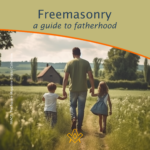 Freemasonry: A Guide to Fatherhood In the sacred halls of Freemasonry, fathers discover a hidden power to transform their parenting journey. With its timeless values, supportive community, and life-enriching teachings, Freemasonry empowers fathers to provide a moral compass, foster self-improvement, build stronger connections, and embrace the confidence and wisdom needed to navigate the complex realm of fatherhood. |
 Courage as a core value in Freemasonry Freemasonry, a revered fraternity, prioritizes virtues like honesty and charity. However, courage is foundational. From Plato to Maya Angelou, courage is vital for other virtues. Freemasonry's teachings, referencing events like Gettysburg, emphasize diverse courage forms. In today's divided world, Masons promote and exemplify courage, understanding its importance in facing challenges. |
 How Freemasonry Cultivates Ideal Entrepreneurial Traits Freemasonry's cryptic rituals hold timeless lessons for building entrepreneurial greatness. Through tests of passion, vision and skill, Masonic teachings forge ideal traits like grit, creativity and alliance-making needed to seize opportunity and elevate enterprises. The right commitment unlocks code for entrepreneurial success. |
 What you see praiseworthy in others "What you see praiseworthy in others, carefully imitate, and what in them may appear defective, you will in yourself amend". This passage of Masonic ritual (Taylors Working, Address to the w |
 How to Learn Ritual with a Learning Disorder So what do you do when faced with that little blue book? Most Masons when first looking at the ritual book can understandably be fazed – the tiny print, the missing words, the questions and answers! Learning ritual can be a challenging task for anyone, especially individuals with learning disorders, but it is not impossible. Here are some tips to help make the process easier. |
 A "mind palace", also known as a "memory palace", is a technique for memorizing and recalling information. How would your life change if you could remember anything and everything? Discover the 'Mind Palace' and all will be revealed. |
 What is leadership and who does freemasonry help develop those skills needed to be a better leader |
 A story of the 'Ruffians' – those individuals whose paths cross ours, who feel entitled to seize and consume the property of others that they have not earned. A lesson to build character to be a better citizen of the world. |
 Now we are back in the Lodge room once again, maybe it is time to review how we learn and deliver ritual and look at different ways of improving that process. |
 Making an advancement in Masonic Knowledge can become far easier when you 'learn how to learn'. |
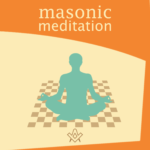 Learn how to practise Masonic meditation in a busy world with all its care and employments |
 Struggling to learn your ritual? Become a 5-Minute Ritualist with the aid of a book of the same name. |
 Day in the life of a Freemason As we start a new year, maybe start it with a new habit? |
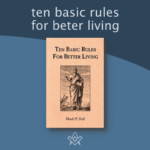 Ten Basic Rules For Better Living Ten Basic Rules For Better Living by Manly P Hall |
 How can we use masonic leadership skills to avoid confrontational situations? |
 How the Trivium is applied to Critical Thinking - {who, what, where, when} - {how} - {why} |
 The Seven Liberal Arts - why 'seven', why 'liberal', why 'arts'? |
 How to improve your public speaking skill with 6 techniques |
 Do you need to speak in public, or present Masonic ritual without notes ? |
 What are logical Fallacies and how to spot them |
 Share one easy tip to learn masonic ritual; Some good tips from Facebook followers |
 How can we use the 7 secrets of the greatest speakers in history |
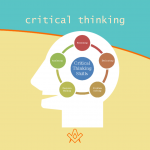 What is a critical thinker and what are their characteristics? |
 Share one personal skill Freemasonry helped you to improve? How can we make practical use of the lessons taught in Masonic writings? |
 An introduction to the art of public speaking - speak with confidence |
 Seven Liberal Arts and Sciences What do you know about Seven Liberal Arts and Sciences |
 Three Words That Will Change Your Life This article discuss a common situation found in many lodges - a difficulty in holding a conversation with a stranger. |
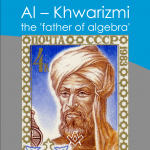 Al - Khwarizmi live c750 - c820 is credited as being the father of Algebra, being asked what is Man, give his answer in an algebraic expression |
masonic knowledge
to be a better citizen of the world
share the square with two brothers

click image to open email app on mobile device






